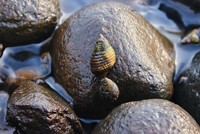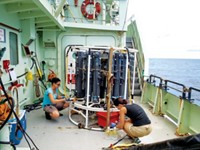Advertisement
Grab your lab coat. Let's get started
Welcome!
Welcome!
Create an account below to get 6 C&EN articles per month, receive newsletters and more - all free.
It seems this is your first time logging in online. Please enter the following information to continue.
As an ACS member you automatically get access to this site. All we need is few more details to create your reading experience.
Not you? Sign in with a different account.
Not you? Sign in with a different account.
ERROR 1
ERROR 1
ERROR 2
ERROR 2
ERROR 2
ERROR 2
ERROR 2
Password and Confirm password must match.
If you have an ACS member number, please enter it here so we can link this account to your membership. (optional)
ERROR 2
ACS values your privacy. By submitting your information, you are gaining access to C&EN and subscribing to our weekly newsletter. We use the information you provide to make your reading experience better, and we will never sell your data to third party members.
Environment
Oil Spill Killed Some Marsh Plants But Spared Others
Disaster Aftermath: One of two dominant marsh plant species has recovered surprisingly well after Deepwater Horizon spill
by Mark Schrope
March 8, 2012

Whether oiled marsh grasses live or die appears to be heavily dependent on species, according to a study in one of the areas hardest hit after the 2010 oil spill in the Gulf of Mexico (Environ. Sci. Technol., DOI: 10.1021/es203552p).
Marsh grasses are important because they hold soil, preventing land erosion, and because they act as nurseries for shrimp, fish, and other marine life. Understanding how they respond to oil could help guide efforts to clean up future spills.
Working at the northern end of Barataria Bay, about 30 miles southeast of New Orleans, Louisiana State University researchers studied two dominant marsh grasses for seven months after the Deepwater Horizon sank: Spartina alterniflora, also known as cordgrass, and Juncus roemerianus, or needlegrass. In spots hit with the most oil, almost everything died, as the researchers had expected. But in marsh areas where the oiling was moderate, the researchers found a distinctive pattern.
Juncus proved highly sensitive to oil when compared to Spartina: More Spartina plants survived and produced young shoots. By seven months after the spill began, the aboveground biomass of Spartina was similar in moderately oiled and unoiled marshes, while oiled Juncus had not recovered. “That was a surprise,” says lead author Quianxin Lin, of the differences in survival. Greenhouse experiments that mimicked the oiling conditions backed up the researchers’ field results.
Lin posits that Juncus may have fared worse in part because its leaves extend from the soil up, whereas Spartina’s leaves sit higher up and avoided more of the oil.
The team hopes to continue its field and greenhouse work to determine the causes of Spartina’s superior resilience.





Join the conversation
Contact the reporter
Submit a Letter to the Editor for publication
Engage with us on Twitter